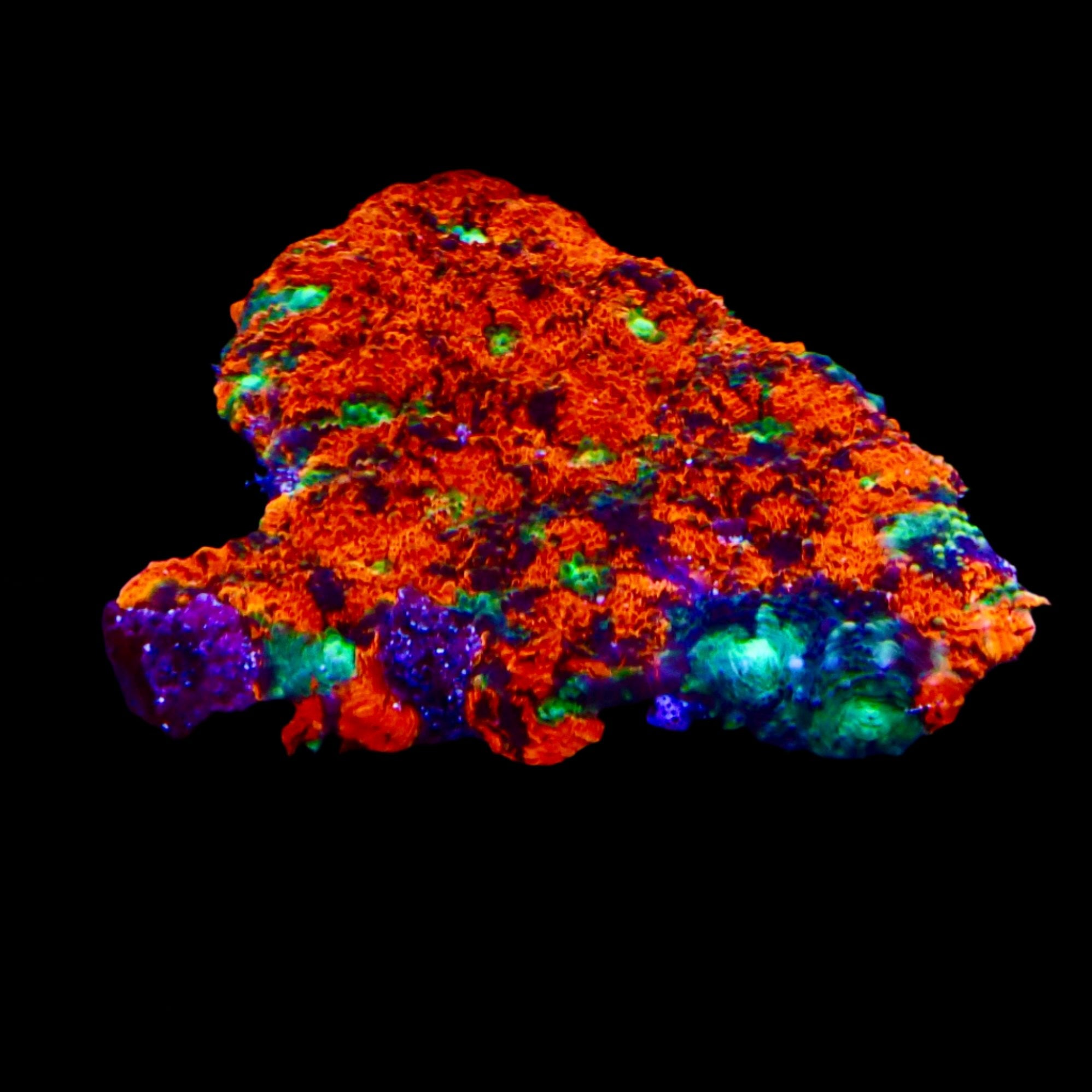
Acanthastrea Coral Ultra Colony
Available
The Acantastrea, commonly known as Acan Coral, is a stunning Large Polyp Stony Coral (LPS) prized for its vibrant colors and easy care. With shades of red, orange, green, and purple, it is an excellent choice to add a burst of color to your reef tank. This coral is perfect for beginner and intermediate aquarists due to its relatively simple requirements and robust nature.
Care Guide:
1. Tank Size and Setup:
• Minimum volume: 50 liters (13 gallons) for stable parameters.
• Lighting: Moderate (recommended PAR: 50–150 PAR). High-quality LED or T5 lighting brings out its colors beautifully.
• Placement:
• Middle or lower areas of the tank, away from excessive light.
• Leave at least 2 inches (5 cm) of space around the coral to prevent aggressive interactions.
2. Water Parameters:
• Temperature: 75–79°F (24–26°C).
• Salinity: 1.024–1.026 (specific gravity).
• pH: 7.8–8.4.
• Calcium: 400–450 ppm.
• Alkalinity (KH): 8–12 dKH.
• Magnesium: 1250–1450 ppm.
• Nitrates: Below 10 ppm (ideally 2–5 ppm).
• Phosphates: Below 0.05 ppm.
3. Flow:
• Low to moderate. Excessive flow can cause polyp retraction or tissue damage.
4. Feeding:
• While it derives much of its energy from photosynthesis, supplemental feeding boosts growth and coloration:
• Enriched brine shrimp, frozen mysis shrimp, or liquid/powdered LPS coral food.
• Frequency: 2–3 times weekly, preferably at night when the polyps are open.
5. Compatibility and Tank Mates:
• Reef-safe: Yes, but watch for its sweeper tentacles, which can harm nearby corals.
• Ideal tank mates: Peaceful fish like gobies, clownfish, and dwarf angelfish.
• Avoid: Aggressive fish or invertebrates that may nip at its tissues, such as butterflyfish or large crabs.
6. Maintenance and Growth:
• Regularly clean the polyps to prevent debris buildup.
• Perform biweekly water changes (10–15%).
• Moderate growth under stable conditions.
7. Signs of Health:
• Fully inflated polyps with vibrant colors.
• No white spots or signs of tissue necrosis.
8. Special Precautions:
• Keep sufficient space from other corals to prevent chemical or physical aggression.
• Avoid handling its soft tissues to prevent stress or infections.
• Maintain stable water parameters, as Acantastrea is sensitive to sudden changes.
 Telephone: 1 450-669-9256
Telephone: 1 450-669-9256 Email: sales@reefsolution.com
Email: sales@reefsolution.com




